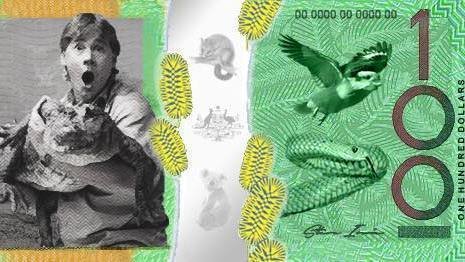Tigers!
Veteran Member
- Joined
- Sep 19, 2005
- Messages
- 4,334
- Location
- On the wing, waiting for a kick.
- Basic Beliefs
- Bible believing revelational redemptionist (Baptist)
I have just emptied my pockets and opened my wallet.
I would love to see a 'grey nurse' ($50) or any paper money for that matter.
I need to find who has my share ask for it nicely.
Is a calm sense of self-satisfaction worth anything?
And Turnbull is gone. that must be worth something.
A grey nurse was $100. And we haven't had paper money for more than twenty years...
My bad typing still lets me down
- - - Updated - - -
He will probably reply disobedience.What did your last slave die of?
- - - Updated - - -
And here I thought it was Sean Connery and wondering why they would have a bloody Scot on their currency.
As I said, that was the old pre-1996 $100 bill. The newer, plastic one looks like this:

That man of the left concerns me alittle. i would be worried that my money would jump out of my wallet and wrestle any passing person.
- - - Updated - - -
I didn't meant to derail the thread with a bad post.
